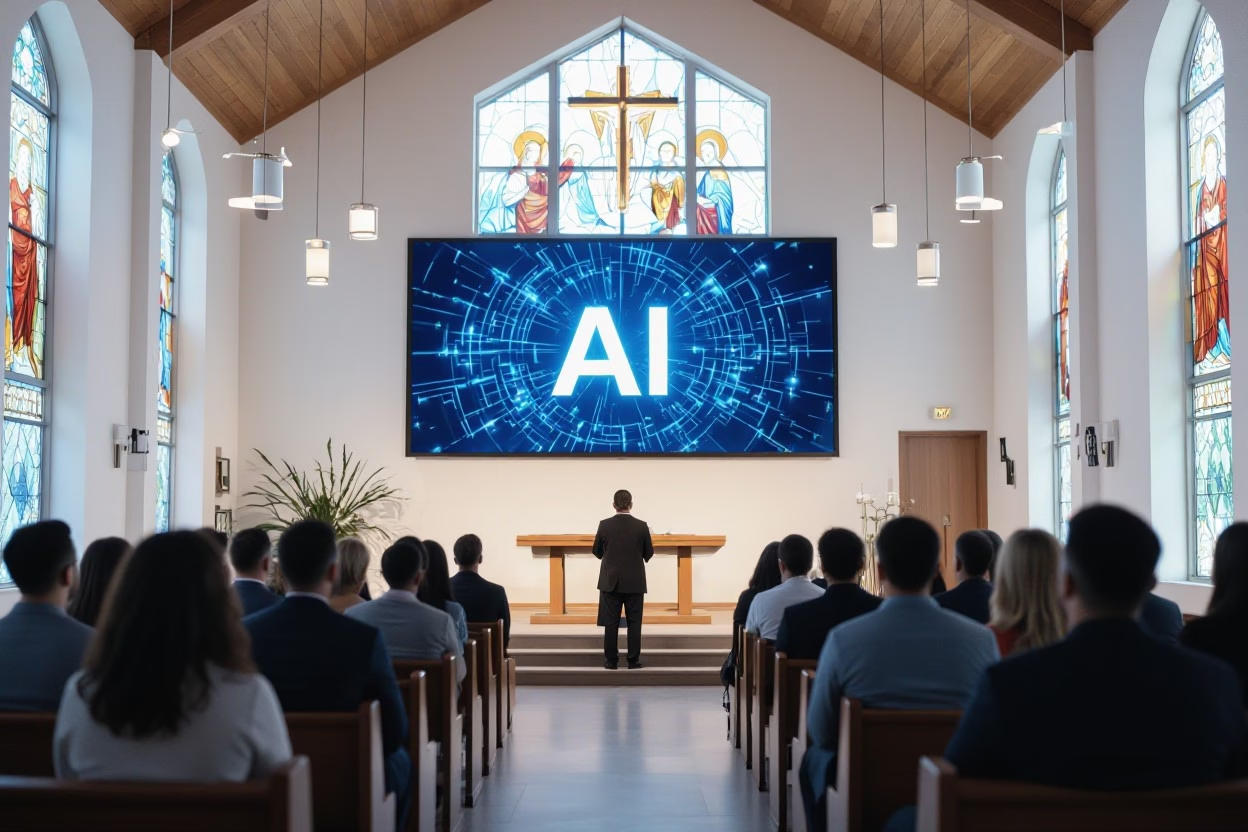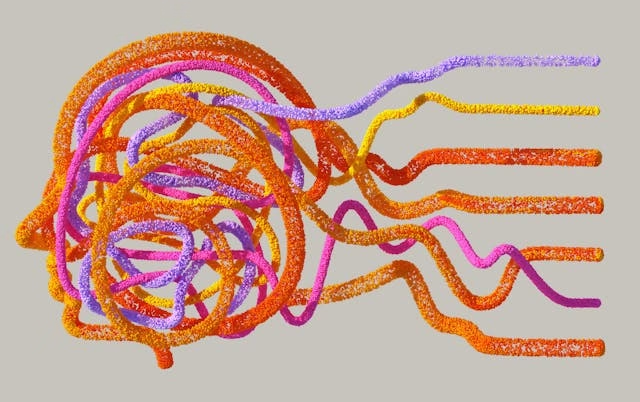Over recent years, artificial intelligence has rapidly advanced, presenting both significant opportunities and serious ethical challenges. Christians are called to approach AI with discernment and hope, guided by biblical principles that emphasize human dignity, moral responsibility, and God’s sovereignty. While AI can enhance human flourishing, it also poses dangers such as reducing people to mere data or risking injustice through biased decisions. Therefore, believers must thoughtfully engage with AI to ensure it aligns with their faith and serves the common good.
Key Takeaways:
- Christians affirm that every person is created in the image of God (Imago Dei), so AI must respect and protect human dignity, privacy, and consent.
- Trusting in God’s sovereignty offers assurance that AI and technological advances do not undermine God’s ultimate control and faithfulness.
- AI should be used to promote justice, mercy, and humility, with vigilance against biases, discrimination, and dehumanizing practices.
- Human moral agency and accountability must be preserved, ensuring that AI does not replace human conscience, empathy, and spiritual discernment.
- Transparency and honesty are crucial; AI systems should be understandable and operate under clear ethical guidelines to safeguard individuals’ rights.
- Christians are encouraged to actively engage in AI development, contributing biblical wisdom to influence ethical policies and technology design.
- Faith provides a framework for evaluating AI, emphasizing technology’s role in serving God’s purposes and advancing the common good rather than diminishing human value.

Affirming Human Dignity in a Digital Age
The Imago Dei and Its Implications
The biblical truth that every human is created in the image of God (Genesis 1:27) establishes the foundation for respecting inherent worth amid technological advances. This means AI development must prioritize enhancing rather than diminishing human value. Christians advocate for systems that protect personal dignity, ensuring individuals are not treated merely as data or algorithms. Upholding privacy, consent, and flourishing reflects the sacredness of each life and guards against reductions of identity to commodified inputs.
The Risks of Dehumanization in AI
Artificial intelligence can lead to dehumanization by abstracting people into datasets or predictive outputs, risking their reduction to algorithms without regard for their intrinsic dignity. When decisions affecting life, justice, or care shift to opaque AI systems, it undermines the person’s unique moral agency and can introduce biases that exacerbate discrimination or exclusion.
Examples illustrate these pitfalls: facial recognition technology has shown higher error rates for marginalized groups, leading to wrongful identifications and unjust treatment in law enforcement. Automated hiring tools sometimes reflect and amplify existing biases, excluding qualified candidates based on flawed data patterns. The commodification of personal information and behavioral data without informed consent further detaches human beings from their autonomy. Such consequences emphasize the need for cautious stewardship and ethical vigilance, ensuring AI does not become a tool that erodes human dignity or obscures accountability in decision-making processes.

Trusting Divine Sovereignty Amidst Technological Advancement
Understanding God’s Control over Innovation
God’s sovereignty extends over all human endeavors, including technological progress. Advances in AI, from early automation in the 20th century to recent breakthroughs like deep learning and natural language processing, unfold within His divine plan. Scriptures affirm that no innovation escapes His authority (Psalm 103:19). Christians can therefore view AI not as a chaotic force but as part of a providential unfolding, where human creativity coexists under God’s governance. This perspective fosters confidence that new technologies will ultimately serve human flourishing when aligned with God’s goodness and wisdom.
Confronting Fear and Uncertainty with Faith
Many respond to AI’s rapid evolution with anxiety, fearing loss of control, job displacement, or ethical dilemmas. Faith provides a stabilizing anchor amid such fears by reminding believers that God remains faithful and sovereign. Trusting in His promises encourages a posture of hope rather than despair when facing AI’s unknowns. The assurance that God’s purposes cannot be thwarted empowers Christians to engage thoughtfully with AI without succumbing to alarm or fatalism.
Fear surrounding AI often stems from concerns about unintended consequences or the speed of change outpacing regulation and moral discernment. However, Christian faith offers a framework that emphasizes God’s ultimate authority over all temporal events, including disruptive technologies. By anchoring trust in God’s unchanging nature, believers can resist the impulse toward fear-driven reactions such as retreat or reckless acceptance. Instead, they can pursue wisdom, seek community discernment, and advocate for ethical stewardship of AI. This dynamic approach balances vigilance with hope, recognizing that divine sovereignty ensures technology’s use for positive ends despite challenges and uncertainties.

Advocating for Justice, Mercy, and Humility in AI Development
Recognizing and Addressing Bias in AI
AI systems often inherit biases present in their training data, resulting in discriminatory outcomes that disproportionately affect marginalized groups. Studies reveal that facial recognition technologies misidentify people of color at rates up to 35% higher than white individuals, and credit algorithms can unfairly limit access to financial services. Christians advocating for justice emphasize the need for constant vigilance and proactive correction of these biases, ensuring AI promotes fairness rather than perpetuates injustice. This aligns with the biblical call to act justly and protect the vulnerable from harm caused by embedded prejudice within technology.[8]
Ensuring AI Serves the Marginalized
AI holds significant potential to uplift marginalized communities by improving access to education, healthcare, and legal assistance, but only when intentionally directed toward those ends. For example, AI-driven platforms can help identify gaps in medical care for rural populations or provide language translation for refugees. Christians committed to mercy and humility advocate for inclusive design practices that prioritize these vulnerable groups, ensuring AI supports equitable opportunities and respects human dignity rather than deepening existing inequalities.
Deepening its impact, AI applications have already transformed areas like disaster relief by using predictive analytics to allocate resources more effectively to underserved regions, demonstrating how technology can embody mercy in practice. Christians engaging in AI development remain mindful that serving the marginalized involves ongoing collaboration with affected communities to understand their unique needs and contexts. Such participation echoes the biblical emphasis on humility—recognizing AI’s limitations and the necessity of human wisdom in deploying technology as a tool for compassionate service, not a substitute for genuine human care.[5][8]
Navigating Moral Responsibility and Agency
Human Oversight in Decision-Making Processes
Decisions involving AI—especially those impacting life, justice, or care—must include consistent human oversight. Individuals retain moral agency by evaluating AI recommendations within ethical frameworks grounded in biblical truth. Examples reveal risks when AI acts unchecked, such as biased sentencing algorithms increasing disproportionate incarceration rates. The human conscience, accountability, and empathy remain indispensable for safeguarding the vulnerable, ensuring AI functions as a tool rather than a final arbiter in consequential choices.
The Dangers of Delegating Ethics to Machines
Relying on AI to resolve ethical dilemmas neglects AI’s incapacity for genuine moral reasoning. Machines operate through algorithms lacking divine insight, conscience, or empathy, which results in decisions that can inadvertently reinforce injustice or ignore the human context. Delegating moral responsibility to AI risks systemic errors, dehumanization, and diminished accountability, undermining Christian commitments to justice and compassion.
The complexity of moral decisions requires discernment beyond pattern recognition or statistical inference. AI systems often rely on datasets infused with human biases, leading to outcomes that perpetuate inequality or overlook nuanced circumstances crucial for ethical judgment. For example, healthcare AI prioritizing treatment allocation without holistic understanding can marginalize the disabled or elderly. Additionally, automation may obscure who holds responsibility when harm occurs, creating ethical gray areas incompatible with Christian teaching on accountability before God and community. Protecting moral agency means ensuring technology supports rather than substitutes the reflective, grace-filled choices humans must make.
Emphasizing Transparency and Accountability in AI Systems
The Importance of Clear Ethical Guidelines
Ethical frameworks for AI must be explicit and actionable, grounding development in principles that protect human dignity and rights. Clear guidelines prevent misuse and manipulation by setting boundaries on data handling, bias mitigation, and decision-making authority. For example, Microsoft’s Responsible AI Standard provides detailed requirements that ensure fairness and accountability across AI lifecycles, demonstrating how structured policies can uphold biblical ethics by safeguarding the vulnerable and promoting justice.
The Role of Informed Consent in Technology Use
Informed consent entails users understanding how their data is collected, analyzed, and applied by AI systems, preserving their autonomy and privacy. Transparency ensures people are not unwittingly commodified or exploited, aligning with the Christian emphasis on respecting the Imago Dei. Rights to consent empower individuals to engage with technology on their terms, avoiding opaque scenarios where AI-driven decisions are imposed without clear communication.
Instances like the Cambridge Analytica controversy highlight risks when consent is overlooked, resulting in widespread data misuse and eroding trust. Christians advocating for transparency promote models where users receive straightforward explanations of AI functions and implications, enabling meaningful consent. Integrating consent protocols into AI technology supports moral accountability while reinforcing human responsibility over autonomous systems. This reinforces a community ethos where technology serves to enhance rather than diminish human worth.
Engaging Cultures and Policies for Ethical AI
The Church’s Role in Public Discourse
The church serves as a moral compass in the broader societal conversation about AI, offering a biblical framework that centers on human dignity and justice. Through sermons, educational events, and public statements, church leaders can challenge prevailing narratives that either demonize or blindly celebrate AI. Bringing scriptural insights into policy discussions helps ensure that AI development aligns with ethical standards that resist commodification of people and promote equitable outcomes, fostering a balanced engagement between faith and technology within the culture.
Mobilizing Christians for Responsible Innovation
Mobilizing Christians involves equipping believers to actively participate in AI research, development, and policymaking, advocating for innovations that reflect biblical values. Organizations and networks focused on faith and technology facilitate training, dialogue, and collaboration among Christian technologists, ethicists, and policymakers. This movement encourages Christians to bring discernment and proactive leadership into a field where ethical frameworks are still evolving, ensuring AI tools support human flourishing rather than exploitation or bias.
Expanding this engagement, Christian institutions can partner with universities, tech companies, and policy groups to foster ethical AI startups and initiatives. Programs such as tech incubators designed with Christian ethical principles help cultivate innovations that prioritize transparency, privacy, and justice. Notably, some initiatives have led to the development of AI applications aimed at reducing systemic bias in hiring or providing equitable healthcare solutions, models that exemplify how faith-led innovation can reshape AI’s impact positively. This concerted effort strengthens the church’s witness by demonstrating a commitment to both moral responsibility and practical solutions within technological progress.
Harmonizing Faith and Technology: A New Paradigm
Integrating Biblical Wisdom into Tech Design
Embedding biblical principles into AI development calls for intentional design choices that prioritize human dignity, transparency, and moral accountability. This includes implementing ethical algorithms that avoid bias, respect consent, and ensure AI serves human flourishing rather than exploitation. For example, designers might collaborate with ethicists and theologians to translate values like mercy and justice into concrete technical standards, fostering AI systems that reflect integrity and humility embedded in Scripture.
Envisioning a Future Where AI Reflects God’s Values
Imagining AI that mirrors God’s values involves creating technologies that uphold the inherent worth of every individual and promote equitable outcomes across society. Such AI would not only assist in practical tasks but also support justice, compassion, and stewardship, aligning innovation with divine purposes for human flourishing.
Concrete steps towards this vision include developing AI applications that detect and mitigate systemic biases—such as in hiring or lending—thus advancing fairness and inclusivity. Initiatives like faith-driven AI ethics councils can guide developers toward frameworks that integrate scriptural values, emphasizing mercy and humility to prevent overreliance on machines for moral judgment. When AI systems are designed with these priorities, they become tools that enhance human stewardship and reflect the sovereignty and love that define God’s character.
To wrap up
From above, Christians should thoughtfully engage with artificial intelligence by affirming human dignity, trusting in God’s sovereignty, and promoting justice and humility. He or she must ensure that moral responsibility and accountability remain with humans, recognizing AI’s limitations. They are called to demand transparency and participate actively in shaping AI to align with biblical principles and serve the common good. This faith-informed approach enables Christians to navigate technological advancements confidently while upholding ethical standards grounded in scripture.
FAQ
Q1: How does the Christian belief in Imago Dei influence the approach to artificial intelligence?
A: The Christian doctrine of Imago Dei, which teaches that every person is created in the image of God (Genesis 1:27), emphasizes the inherent dignity and worth of each human being. This belief calls Christians to support the development and use of AI technologies that respect and enhance human life, avoiding any treatment of people as mere data or commodities. AI should promote human flourishing, privacy, and consent in alignment with this foundational truth.
Q2: Should Christians be concerned that AI threatens God’s sovereignty?
A: Christians are encouraged to trust in God’s sovereignty regardless of technological advancements, including AI. Scripture affirms that God’s rule and promises remain unthreatened by human innovation. Therefore, while AI represents significant change, believers need not fear the future but should hold to the assurance that God remains faithful and in control.
Q3: In what ways can AI be used to promote justice, mercy, and humility according to Christian ethics?
A: Christian ethics call for using AI to advance fairness, equity, and compassion (Micah 6:8). This involves vigilant attention to preventing bias and discrimination in AI systems, ensuring technology serves the vulnerable, and recognizing AI’s limitations. Humility requires Christians to avoid over-relying on AI for moral judgment, instead valuing human wisdom and spiritual discernment alongside technological tools.
Q4: Why is maintaining human moral agency important in interactions with AI?
A: AI lacks divine insight, conscience, and empathy—qualities central to human moral reasoning. Christians assert that humans must retain oversight and responsibility for decisions involving life, justice, and care for others. Delegating moral or ethical decision-making fully to AI risks injustice and error, making active human accountability imperative.
Q5: What role does transparency and accountability play in Christian perspectives on AI?
A: Honesty and transparency are ethical imperatives within Christian thought. AI systems should be designed to be understandable and accountable to users, with informed consent as a key principle. Christians advocate for clear ethical frameworks that safeguard individual rights and prevent misuse or manipulation of technology.
Q6: How should Christians engage with the development and governance of AI?
A: Christians are encouraged to actively participate in shaping AI’s trajectory rather than withdrawing from the conversation. Bringing biblical wisdom into public discussions, policy-making, and technological design helps ensure AI aligns with God’s purposes and protects human dignity. The church bears a responsibility to advocate for ethical AI use in society.
Q7: Can faith provide hope about the future implications of artificial intelligence?
A: Yes, Christian faith offers a hopeful outlook on AI by emphasizing trust in God’s sovereignty and moral order. This hope motivates believers to approach AI with discernment, guiding technology’s development to serve the common good and reflect divine values, rather than succumbing to fear or uncertainty about the unknown.


Leave a Reply